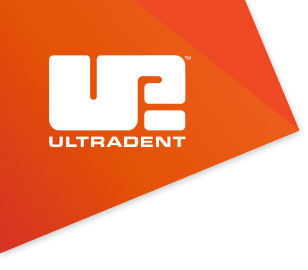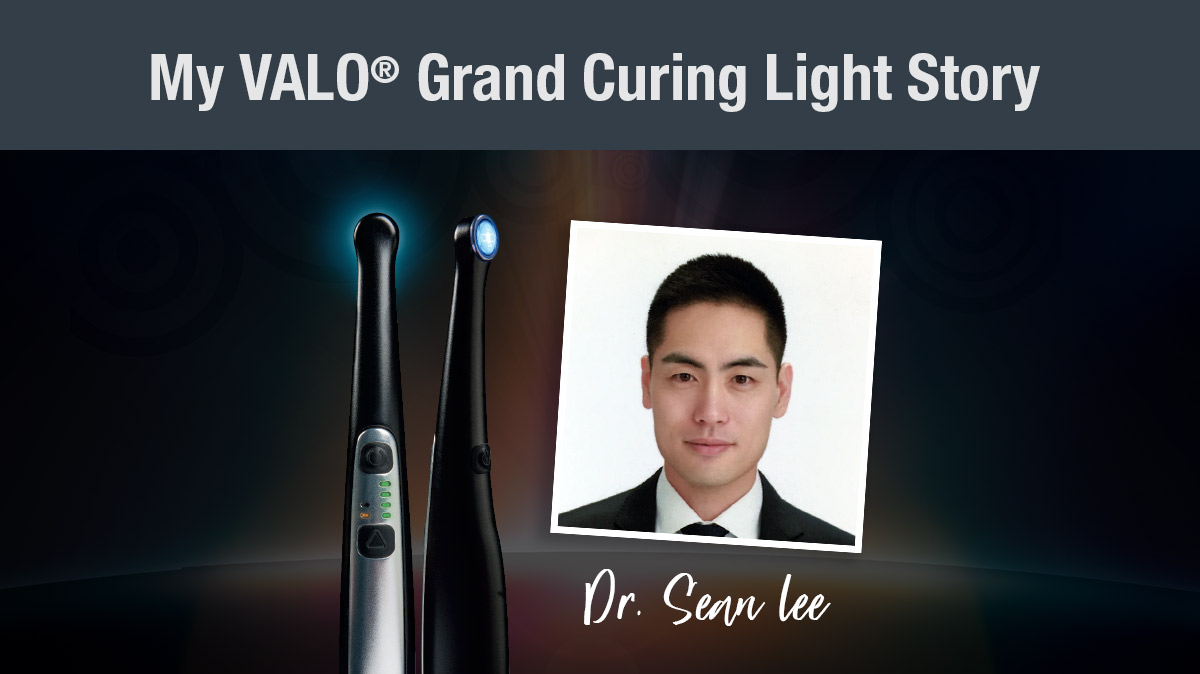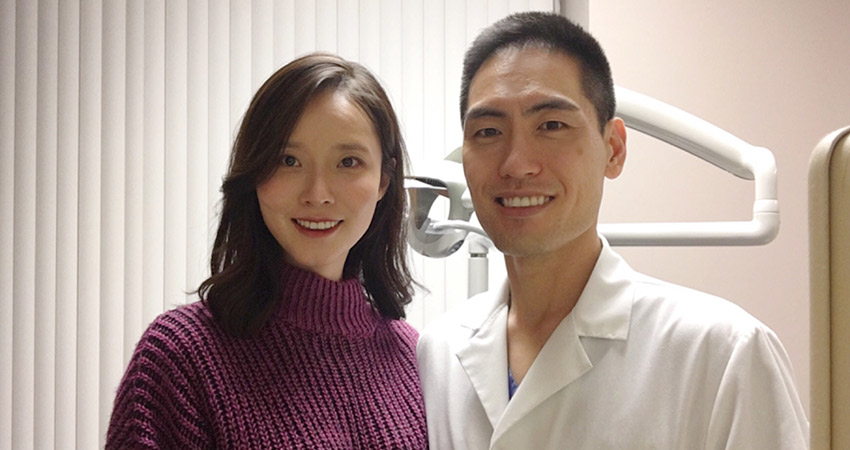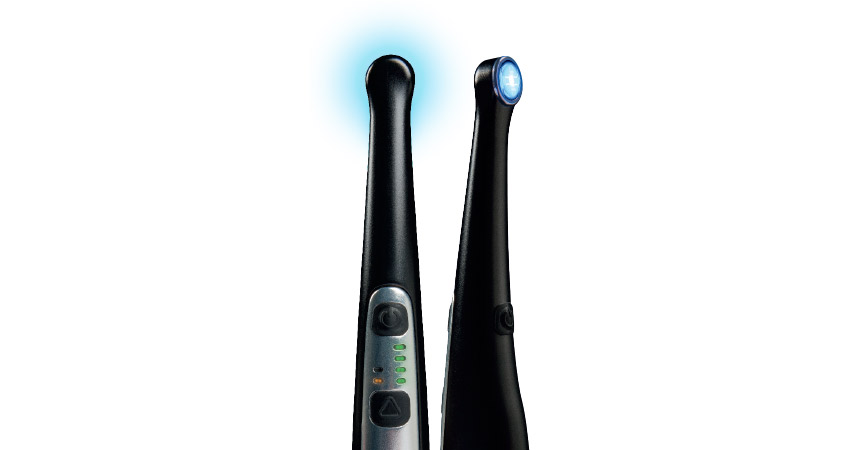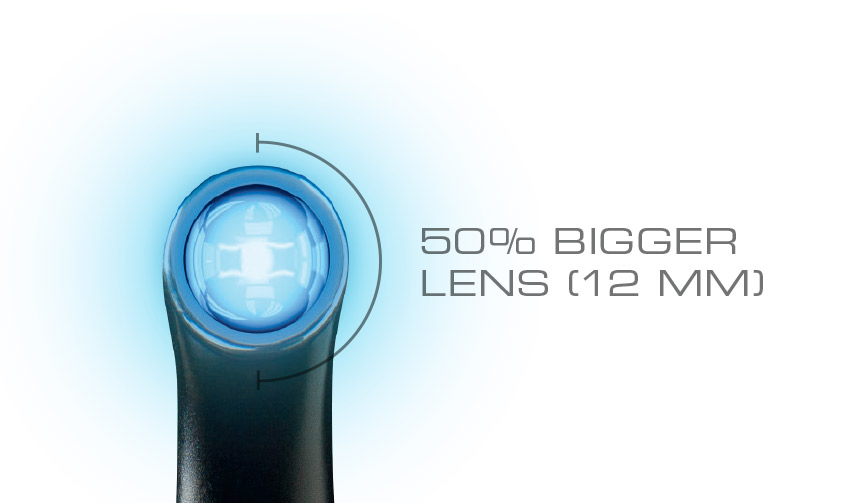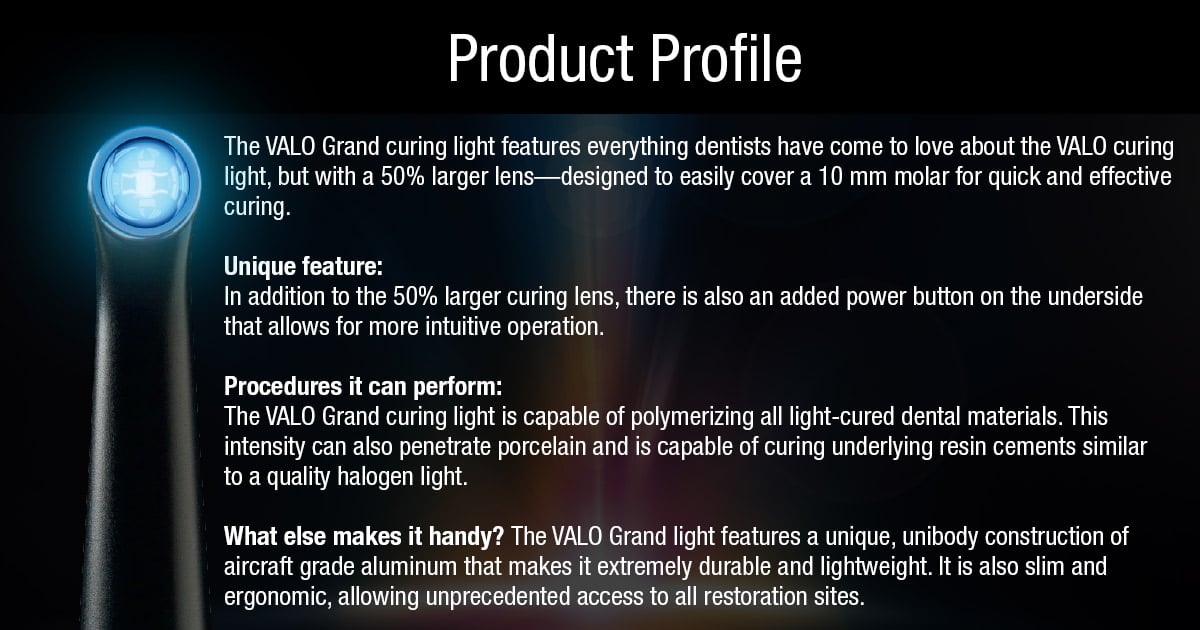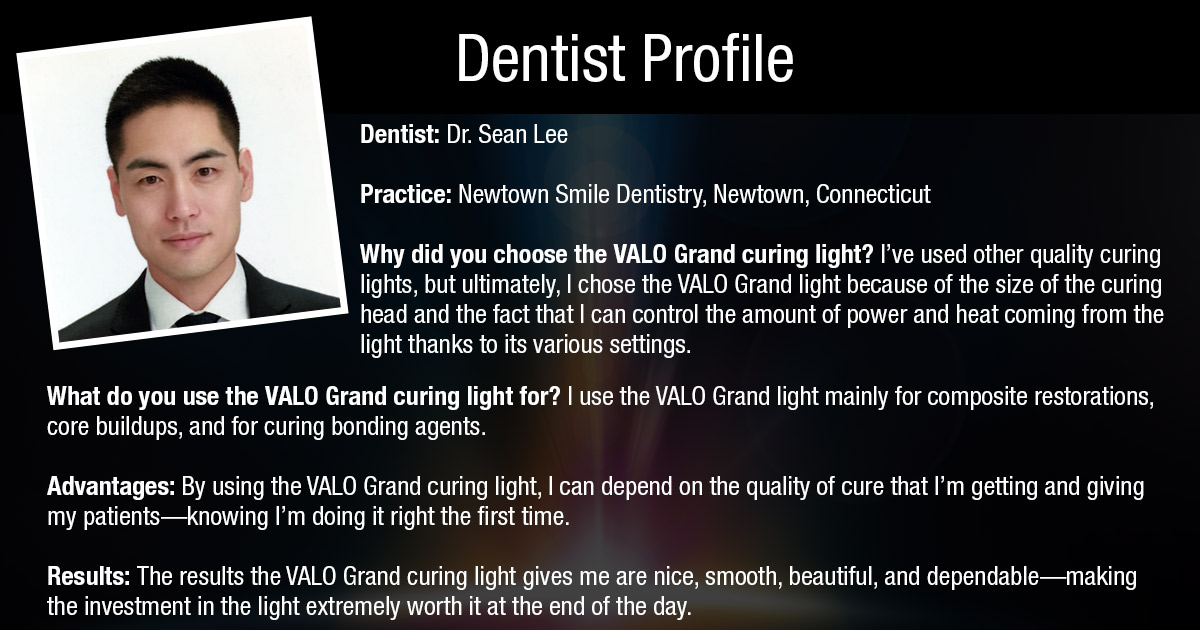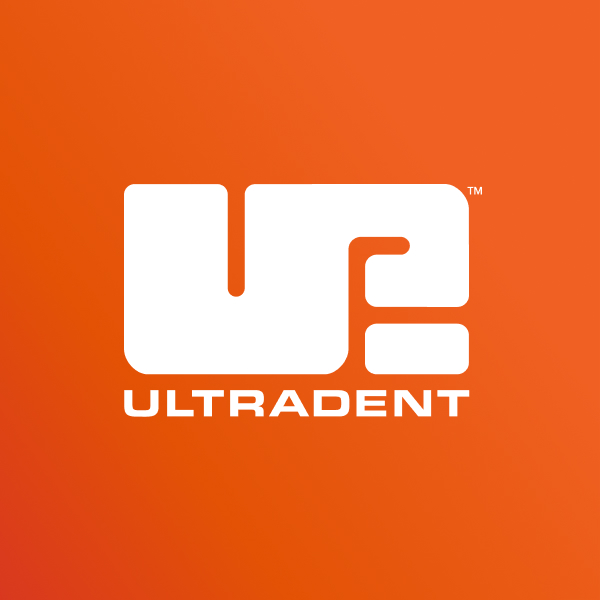Dr. Sean Lee, the owner of Newtown Smile Dentistry in Newtown, Connecticut, believes in doing things right the first time. It’s this philosophy that guides how he treats his patients, performs the many dental procedures in his everyday work, and how he chooses products.
One of the products that enables Dr. Lee to do his very best work is his VALO® Grand curing light. He says,
Before opening up his own practice, Dr. Lee was first exposed to using a VALO® curing light at an office where worked right after dental school.
Here’s what you need to know:
Section 179 of the United States tax code allows companies that purchase equipment and technology to depreciate those fixed assets over their useful life. Essentially it’s an accounting method that matches the cost of acquiring an asset with the years the asset earns revenue. This includes equipment purchases like our Gemini® laser, VALO® and VALO® Grand curing lights, and Endo-Eze™ Genius® endodontic motor system.
What Benefits Does Section 179 Offer?
There are two important benefits to taking advantage of Section 179. First, it allows dentists to recover their original purchase cost of an equipment or technology item by allowing them to deduct the cost of the purchase in the year the dentist placed it into service or take non-cash depreciation deductions against revenue over the useful life of the asset. It also helps clinicians save money on taxes because depreciation expenses are tax deductible, which in turn lowers the practice’s taxable income. The lower the taxable income means more tax savings and greater profit.
How Does Section 179 Work?
By depreciating asset expenses, dentists can recover the cost of their equipment technology purchase over the useful life of the asset. For example, with Ultradent’s two-year warranty of the VALO® Cordless and VALO Grand® curing light, clinicians can annually deduct one-half of the cost of the curing light for two years.
When Should Dentists Use Section 179?
Here are the rules clinicians must adhere to when filing for a tax break under Section 179:
“Dr. Sean Lee smiles with his wife,
TK, at Newtown Smile Dentistry
TK, at Newtown Smile Dentistry
One of the products that enables Dr. Lee to do his very best work is his VALO® Grand curing light. He says,
“I never take short-cuts. I believe in doing things right the first time, and when I do that, everyone is happy. With my VALO Grand curing light, the patient gets a long-lasting, quality restoration, and I don’t get patients coming back to me because of a failed restoration that I didn’t do right the first time, which I would then need to fix for free. It saves us both time and money!”
Ultradent’s VALO® Grand Curing Light
Before opening up his own practice, Dr. Lee was first exposed to using a VALO® curing light at an office where worked right after dental school.
“Even with the smaller, original VALO curing light, I was very satisfied with the performance, so when my Ultradent representative told me about the VALO Grand light—which has a larger curing head—I jumped at the chance to buy it, and it’s now what I use in my own practice exclusively.”
So why the VALO Grand light? Dr. Lee says,
VALO Grand features a 12mm lens. That’s 50%
larger than the original VALO curing light
larger than the original VALO curing light
So why the VALO Grand light? Dr. Lee says,
“I love the surface area that the large curing head of the VALO Grand curing light allows me to cover—which is the entire tooth. Having the VALO Grand light in my office enables me to reach any part of any restoration I need to reach, in any part of the mouth, and to cure it thoroughly. Also, thanks to its size and fact that I can cure an entire tooth at a time at a rapid pace, it saves both me and the patient chair time, which both parties can appreciate.”
Bonus: Make Sure to Take Advantage of Section 179—A Tax Break on Equipment for Dentists Before the End of the Year!
Here’s what you need to know:
Section 179 of the United States tax code allows companies that purchase equipment and technology to depreciate those fixed assets over their useful life. Essentially it’s an accounting method that matches the cost of acquiring an asset with the years the asset earns revenue. This includes equipment purchases like our Gemini® laser, VALO® and VALO® Grand curing lights, and Endo-Eze™ Genius® endodontic motor system.
What Benefits Does Section 179 Offer?
There are two important benefits to taking advantage of Section 179. First, it allows dentists to recover their original purchase cost of an equipment or technology item by allowing them to deduct the cost of the purchase in the year the dentist placed it into service or take non-cash depreciation deductions against revenue over the useful life of the asset. It also helps clinicians save money on taxes because depreciation expenses are tax deductible, which in turn lowers the practice’s taxable income. The lower the taxable income means more tax savings and greater profit.
How Does Section 179 Work?
By depreciating asset expenses, dentists can recover the cost of their equipment technology purchase over the useful life of the asset. For example, with Ultradent’s two-year warranty of the VALO® Cordless and VALO Grand® curing light, clinicians can annually deduct one-half of the cost of the curing light for two years.
When Should Dentists Use Section 179?
Here are the rules clinicians must adhere to when filing for a tax break under Section 179:
- Remember there is a time limit! The deduction is allowed ONLY in the year that the asset is placed into service, or, the year in which the equipment is ready for use, not the year in which the equipment is purchased.
- Many dentists want to know if equipment or technology they are leasing qualifies them to take advantage of Section 179. The answer is yes. Section 179 applies to personal property (equipment and technology) as well as potential leasehold improvements. This could be a great route for many practices, as the deduction may exceed total loan or lease payments they make on their equipment and technology per year.

